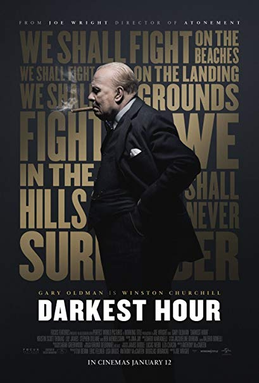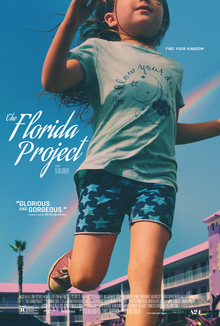As a fan of women, comedy, Amy Sherman-Palladino, and the 1950s, it was a given that I should enjoy The Marvelous Mrs. Maisel. And yet I hesitated for the longest time because I thought it would be a bit too trite. I thought of Studio 60 on the Sunset Strip - a show that I loved, but which always failed when trying to demonstrate how funny the comedy show within the show was. Comedy is a difficult beast, and I wasn't sure I would be able to watch a show about a woman who breaks into stand-up comedy, because so much depends on whether or not she's actually any good. Thankfully, by casting Rachel Brosnahan as the titular Mrs. Maisel, the show hit the jackpot.
Set in 1958, the show tells the story of Miriam "Midge" Maisel, a Jewish housewife living on the Upper West Side with her husband Joel and their two kids. Joel is a businessman, but on the side he harbors ambitions of being a stand-up comedian and drags Midge to the Gaslight Cafe on Lower East Side to try out his routines (many of which are stolen from other comedians). Midge is his biggest supporter, taking notes on how many laughs he gets and ways that he could improve his delivery, but she foolishly believes that this is all just a hobby for him. What she doesn't realize is that he is having a full-blown crisis, and when he ends up leaving her for his secretary, she gets very drunk, shows up at the Gaslight, and does her own routine about how her life is falling apart. Which catches the eye of Susie (Alex Borstein), an employee at the Gaslight, who decides that she is going to become Midge's manager.
The first season is only eight episodes long, so let's not spoil too much plot. Instead, let's discuss what makes this show a delight to watch. Set in the 1950s, you of course have the aesthetics. The costumes and production design on this show are staggering. Every outfit Midge wears is like something out of I Love Lucy, except in vibrant color. They don't seem like they would be particularly comfortable and she spends a lot of her time obsessing over her body proportions so those clothes continue to fit. But I certainly wouldn't mind twirling around in one of those dresses for a few hours before I passed out. And her apartment, the comedy clubs, the department store - everything is brimming with little knickknacks and flourishes that don't make you doubt the time period for a second. All accompanied by a perfect soundtrack, featuring Ms. Barbra Streisand at strategic moments for maximum impact.
Then there's the acting. Brosnahan is a class act, able to capture all the dramatic turns in Midge's life and then channel them into raucous comedy at her stand-up sets. She has a face you can't tear away from and pitch-perfect delivery that makes you immediately understand why Susie would be so captivated by this bizarre woman and her marital woes. Alex Borstein as Susie is a perfect foil to Brosnahan's Midge, the complete antithesis of everything Midge holds dear. While Midge is always dolled up and gorgeous, Susie wonders around in rumpled pants and jackets, constantly being mistaken for a man. But the two of them worship comedy, and form a fast friendship and partnership. There's a moment when Midge breaks down and tells Susie that part of her job as a good manager is to just listen to her cry (boy can I relate). My favorite part of the show is watching them craft the "perfect 10," i.e. ten minutes of meticulously precise comedy that will score with audiences every time. The emphasis on timing, word choice, joke structure - it all goes to show you that creating comedy is no accident, it takes true dedication.
This is also a very Jewish show. Midge and Joel are the children of Jewish immigrants who take their heritage very seriously, and it's always entertaining to watch the families interact or see how they deal with the separation. Tony Shalhoub and Marin Hinkle are particularly wonderful as Midge's loving but long-suffering parents. The more you learn about her mother, the more you understand how Midge turned out the way she did, and there is certainly a great deal of emphasis on the way women were in the 50s and their constant struggle to pretend to be what they're not. Being a comedienne was absolutely unthinkable for someone from Midge's background, and I cannot wait to see what happens as she gets more famous and has to deal with more criticism precisely because she is a woman. Of course, she is embarking on this career from an extremely privileged position - she does not lack for money or love, and if this career doesn't work out, she has a family who will do anything to support her. This show is not going to tell you anything about the travails of being from the working class or being a person of color in 1950s America. But it's still damn good television.
The routines featured in The Marvelous Mrs. Maisel are genuinely funny, with jokes you would pay for at a comedy club. When Midge leaves the club, everything she endures in her life is both dramatic but brimming with potential, and it is a joy to see how Midge can take a potentially terrible moment in her life and mine it for laughs from an audience. That's why comedy is so difficult - you often have to create it from tragedy. By sticking to only eight episodes, The Marvelous Mrs. Maisel gives us a tight season that is both beautiful to look at and entertaining to experience. Much like Midge's routines, this is a meticulously crafted show that knows exactly how to keep its audience laughing and wanting more.
Set in 1958, the show tells the story of Miriam "Midge" Maisel, a Jewish housewife living on the Upper West Side with her husband Joel and their two kids. Joel is a businessman, but on the side he harbors ambitions of being a stand-up comedian and drags Midge to the Gaslight Cafe on Lower East Side to try out his routines (many of which are stolen from other comedians). Midge is his biggest supporter, taking notes on how many laughs he gets and ways that he could improve his delivery, but she foolishly believes that this is all just a hobby for him. What she doesn't realize is that he is having a full-blown crisis, and when he ends up leaving her for his secretary, she gets very drunk, shows up at the Gaslight, and does her own routine about how her life is falling apart. Which catches the eye of Susie (Alex Borstein), an employee at the Gaslight, who decides that she is going to become Midge's manager.
The first season is only eight episodes long, so let's not spoil too much plot. Instead, let's discuss what makes this show a delight to watch. Set in the 1950s, you of course have the aesthetics. The costumes and production design on this show are staggering. Every outfit Midge wears is like something out of I Love Lucy, except in vibrant color. They don't seem like they would be particularly comfortable and she spends a lot of her time obsessing over her body proportions so those clothes continue to fit. But I certainly wouldn't mind twirling around in one of those dresses for a few hours before I passed out. And her apartment, the comedy clubs, the department store - everything is brimming with little knickknacks and flourishes that don't make you doubt the time period for a second. All accompanied by a perfect soundtrack, featuring Ms. Barbra Streisand at strategic moments for maximum impact.
Then there's the acting. Brosnahan is a class act, able to capture all the dramatic turns in Midge's life and then channel them into raucous comedy at her stand-up sets. She has a face you can't tear away from and pitch-perfect delivery that makes you immediately understand why Susie would be so captivated by this bizarre woman and her marital woes. Alex Borstein as Susie is a perfect foil to Brosnahan's Midge, the complete antithesis of everything Midge holds dear. While Midge is always dolled up and gorgeous, Susie wonders around in rumpled pants and jackets, constantly being mistaken for a man. But the two of them worship comedy, and form a fast friendship and partnership. There's a moment when Midge breaks down and tells Susie that part of her job as a good manager is to just listen to her cry (boy can I relate). My favorite part of the show is watching them craft the "perfect 10," i.e. ten minutes of meticulously precise comedy that will score with audiences every time. The emphasis on timing, word choice, joke structure - it all goes to show you that creating comedy is no accident, it takes true dedication.
This is also a very Jewish show. Midge and Joel are the children of Jewish immigrants who take their heritage very seriously, and it's always entertaining to watch the families interact or see how they deal with the separation. Tony Shalhoub and Marin Hinkle are particularly wonderful as Midge's loving but long-suffering parents. The more you learn about her mother, the more you understand how Midge turned out the way she did, and there is certainly a great deal of emphasis on the way women were in the 50s and their constant struggle to pretend to be what they're not. Being a comedienne was absolutely unthinkable for someone from Midge's background, and I cannot wait to see what happens as she gets more famous and has to deal with more criticism precisely because she is a woman. Of course, she is embarking on this career from an extremely privileged position - she does not lack for money or love, and if this career doesn't work out, she has a family who will do anything to support her. This show is not going to tell you anything about the travails of being from the working class or being a person of color in 1950s America. But it's still damn good television.
The routines featured in The Marvelous Mrs. Maisel are genuinely funny, with jokes you would pay for at a comedy club. When Midge leaves the club, everything she endures in her life is both dramatic but brimming with potential, and it is a joy to see how Midge can take a potentially terrible moment in her life and mine it for laughs from an audience. That's why comedy is so difficult - you often have to create it from tragedy. By sticking to only eight episodes, The Marvelous Mrs. Maisel gives us a tight season that is both beautiful to look at and entertaining to experience. Much like Midge's routines, this is a meticulously crafted show that knows exactly how to keep its audience laughing and wanting more.


.png)


.png)
